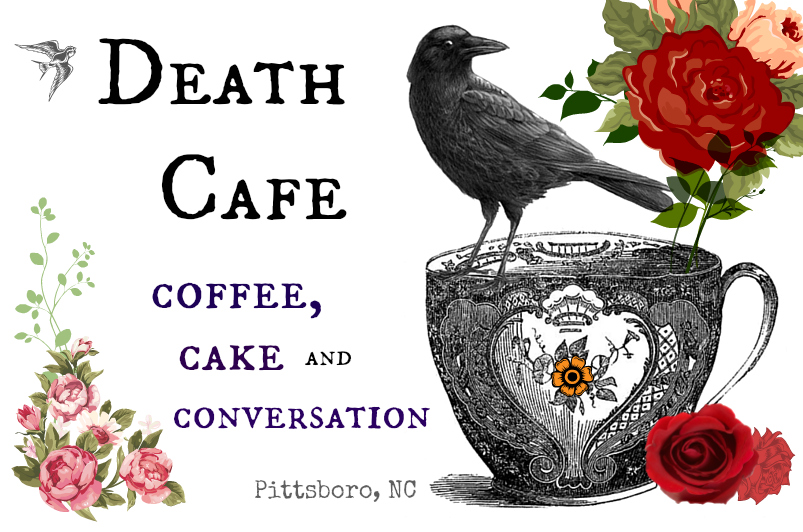
14 Sep Finite lives – exploring human impermanence at a ‘Death Cafe’. Not as miserable or morbid as it might at first sound…
Whilst visiting Wales this week, I became aware of a so-called ‘Death Cafe’ being convened in a small market town, close by where we were staying. I had heard of the idea previously and had wanted to go along to a ‘cafe’ for some time but the opportunity never arose. For those not familiar with the idea of marrying death with dining, a Death Cafe (or Cafe Mortel) is a not-for-profit get-together for the purpose of people, often strangers, talking about death over food and drink – usually tea and cake. The goal of these groups is for people, not field professionals or academics, to educate each other through healthy conversation and philosophical debate – about death. Questions are orientated towards confronting ‘end of life’ concepts, notionally helping us all to seize and make the most of our finite lives – the bit between now and then! I was just slightly miffed that a dear friend and colleague could not be here to go along with me (sorry, Lynne). As well as journeying alone, navigating the dark unlit country lanes between Hereford and Hay I realised that I was also going to be attending alone and excitingly, being amongst complete strangers.
Many of you will know that my grounded therapy style draws heavily on the ideas of existence – the notion that a person’s conflicts often result from the irresolvable dilemmas of being human. I love existentialism’s philosophical frame and whilst seemingly morbid, I am fascinated by how we all deal with our mortality and paradoxically, how the notion of death and our finiteness or impermanence either compels or paralyses our living and being-in-life. The Death Cafe did not disappoint and we had a compelling debate about social grief and death in the public eye. We talked about the death of popular figures – topically, Diana Princess of Wales, but also musical icons such as John Lennon and David Bowie; the circumstances of the death of all three public figures and the reactions triggered in us individually and collectively – about our own mortality and the playing out of our grief. Really interesting reactions and contributions from people who I had never met before and so liberating, talking about the biggest taboo – our non-being, our death.
People vary in their views about what happens after our mortal death – for some there is a transpersonal belief of ‘beyond-ness’, an afterlife, a being which transcends mortality. For others, and here I am coining a phrase used by the psychiatrist and existential psychotherapist, Irvin D. Yalom: “what follows life will be the same as what preceded it” (an assumed nothingness or no-thing-ness). An existential position would be that whilst our existence and purpose in being is an ever alterable construct, ultimately, we live only to die and complete our ‘being’.
So… I am hoping that as someone reading this post that you will or at least might be stirred by the prospect of talking about death (I know how that sounds…) and in doing so being compelled to live your life ‘authentically’, more vitally, and less regretfully. I am planning on convening a ‘Death Cafe Stoke’ in the near future so keep an eye out for my posts. It will be a non-profit-making event and if we can make it work, something that we can convene on a regular basis.



Charlie Jones
Posted at 09:26h, 16 JanuaryI am so happy you visited Wales, this is where I live in a small town called Llangollen. I am setting up a Death Cafe here and have been looking for images. Yours is lovely and I was wondering if you would mind me using it?
I work as a facilties officer for the town council and think the cafe would be a great thing for those who want to talk about death and living.
jeremy
Posted at 23:03h, 16 JanuaryHello Charlie,
Good to hear from you and to learn of what you are planning to do in your role as facilities officer for the Town Council. I agree – what a great idea!
Yes please feel able to use the image.
Be well, keep in touch.
Jeremy Boughey